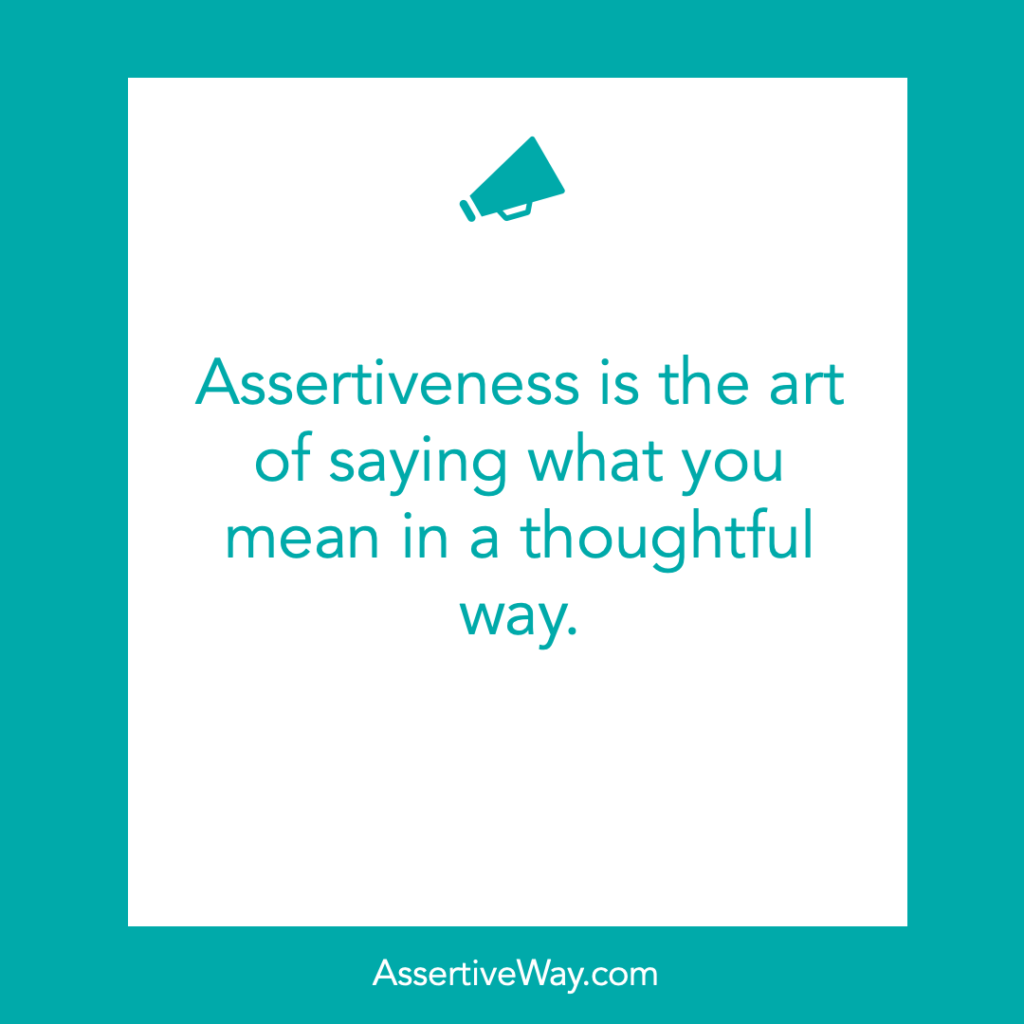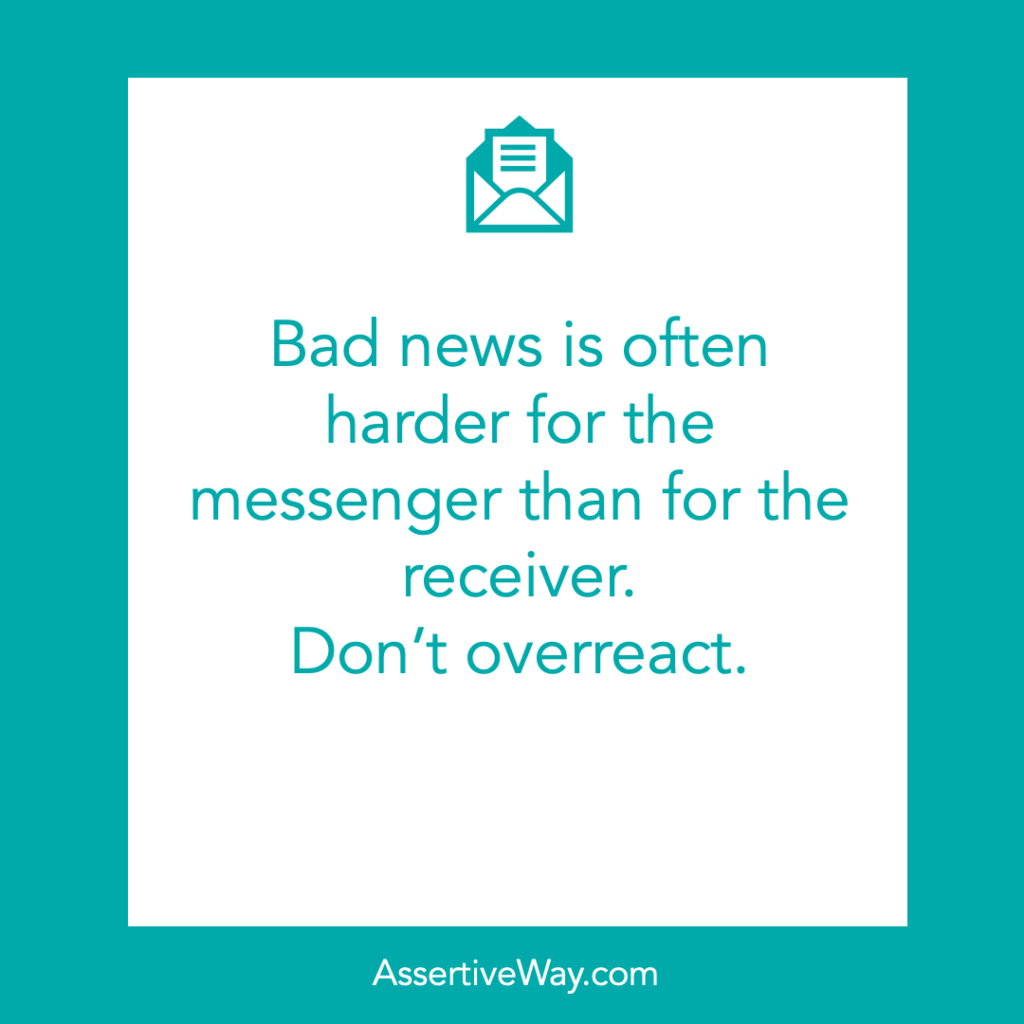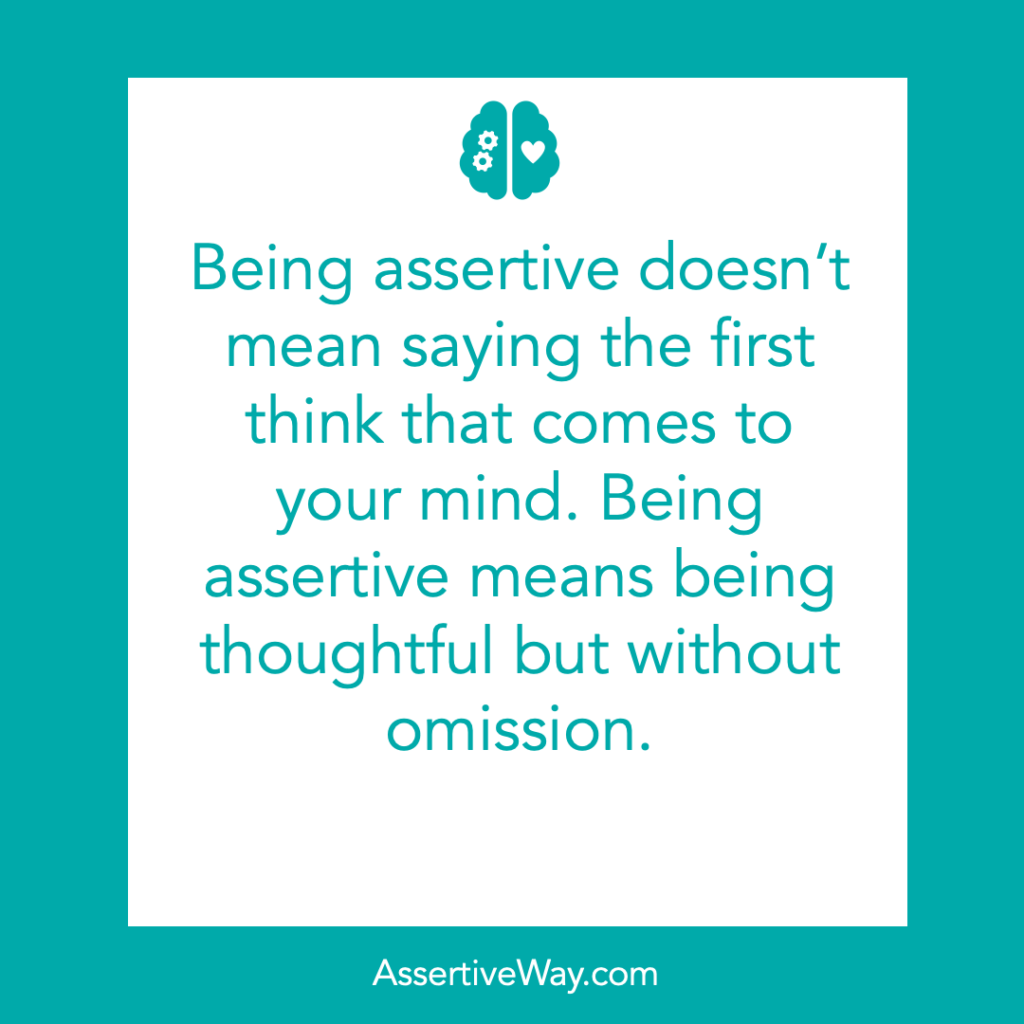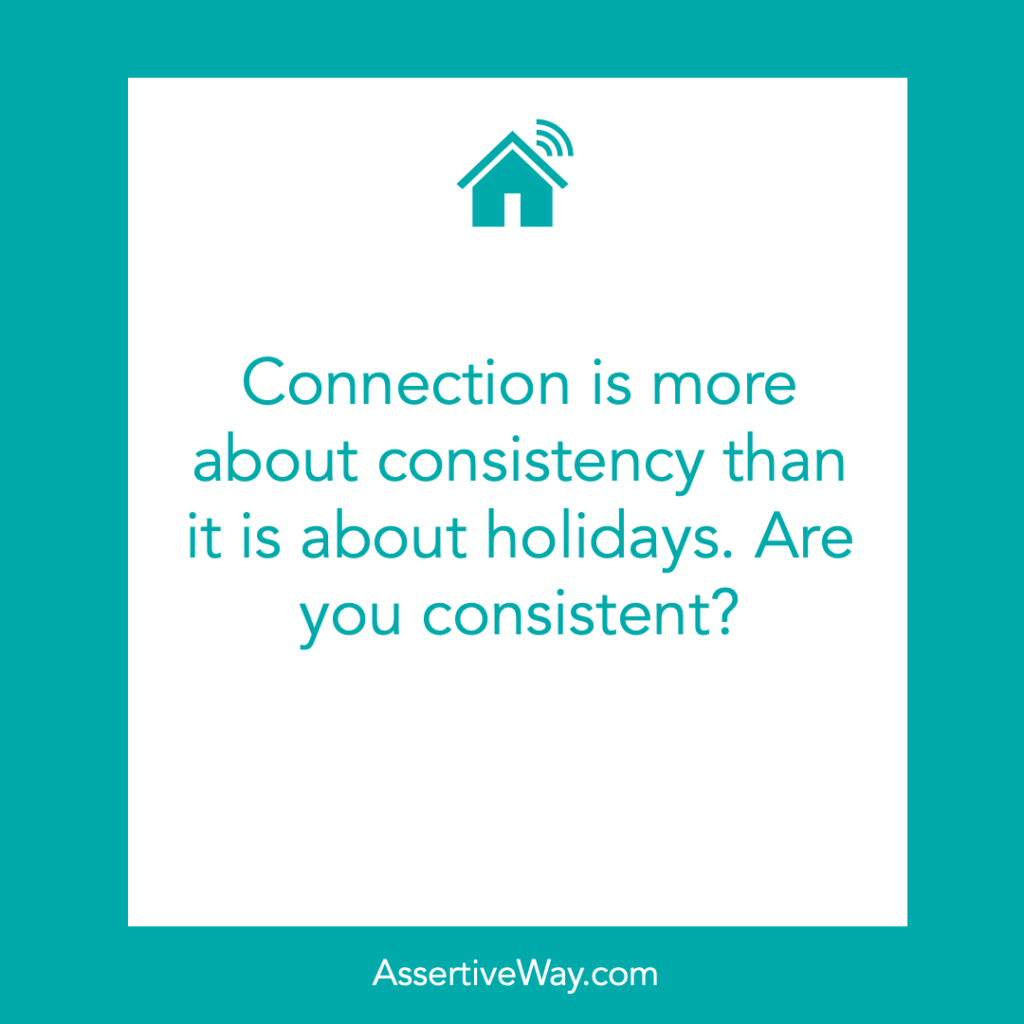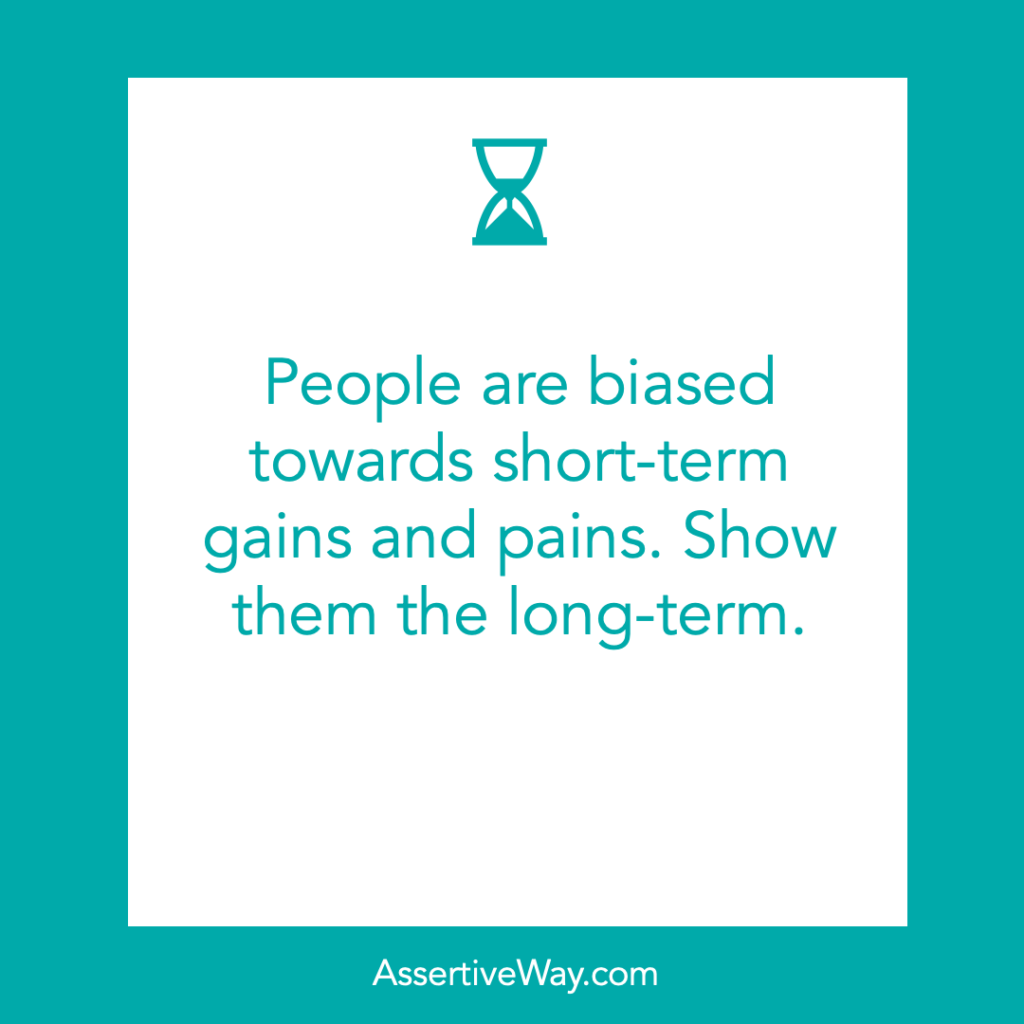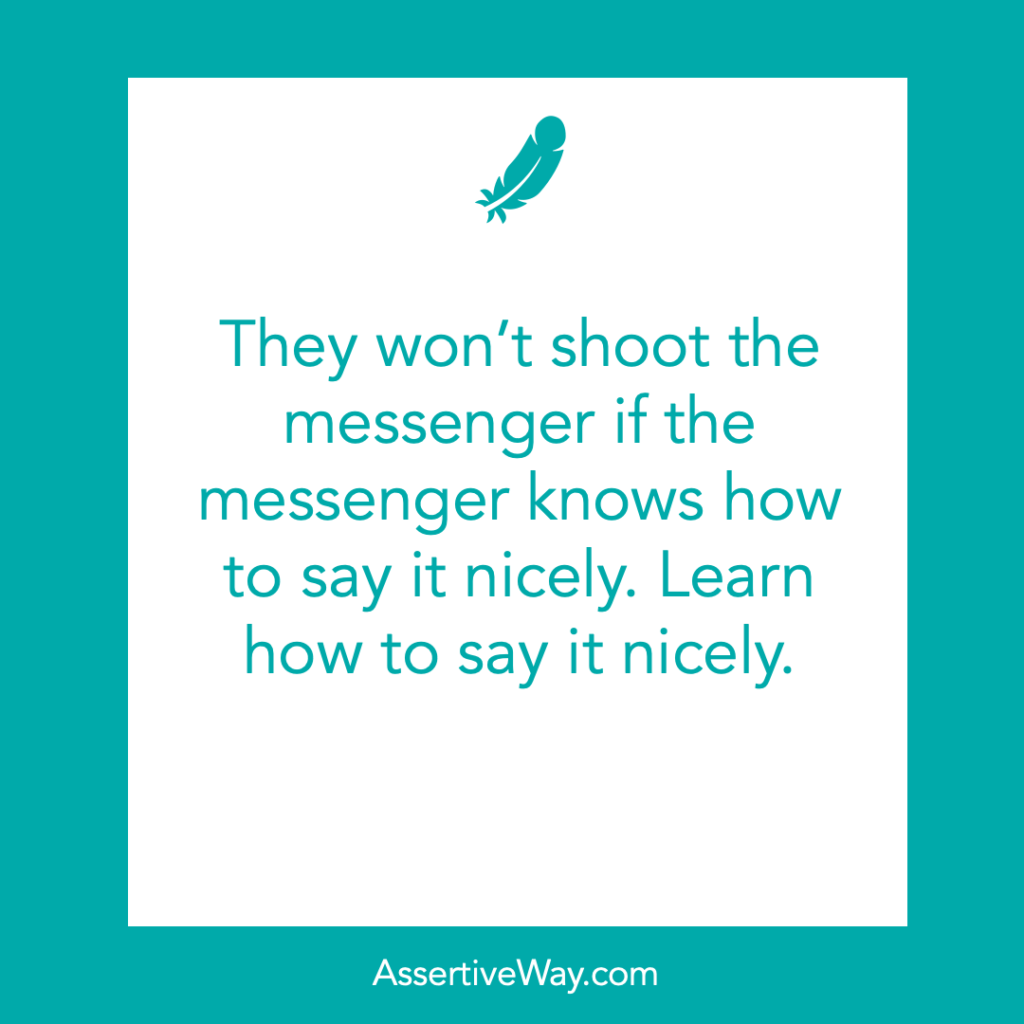And how to talk about COVID-19 risks.
By Assertive Way
Key Takeaways
- As we approach 2020 end of year holidays, be it Thanksgiving, Christmas, Hanukkah, New Years, consider the Coronavirus risk you pose to your family members, especially if they are seniors or have risk conditions. Don’t have regrets later.
- If you decide to not visit, then be more present virtually. Remember that when you aren’t present in person, you need to overcommunicate your emotions since you don’t have the same connection through eye contact, touch, body language, nodding, and facial expressions.
- Enhance your virtual conversations by using more emphatic words that communicate emotion, by accentuating your intonation, and by using expressions to show you are listening.
- Here’s 3 strategies you can use to bridge the communication gap and influence your loved ones in these emotional hard conversations: Get them to empathize with you; Make it about you, not them; Make it about the long-term benefits vs. short term pains
- Here’s 6 steps to break the negative news that you’re not visiting your esteemed family members and friends during this holiday season in a warm, caring, and loving way: 1) Reaffirm the relationship value; 2) Be direct about your decisions without hesitation; 3) Say why based on your feelings or concerns; 4) Offer an alternative; 5) Reaffirm the relationship value; 6) Paint a brighter future
-
Over the holidays, choose to have both safety and connection.
What I Learned With Zika Virus
For 15 years since I left my parents home, I had never spent more than a year without seeing them and my brother, and I’d usually visit them around New Years time. We get along very well and I am always super excited to see them. My parents and brother live in the Northeast of Brazil.
In 2015 Zika virus epidemic spread across Brazil and then the world, and it was especially present in the Northeast of Brazil, where the weather is warm. Zika virus was caused many birth defects like microcephaly and other neurological problems on newborns.
This meant babies could have collapsed skulls, brain damage, seizures, hearing loss, growth, and vision lifelong problems. And because it was a new virus, little was known about it and there was a belief that once a man or woman became infected their future pregnancies were at risk for a long time. A common mosquito called Aedes Aegypti transmitted Zika virus.
By New Years it had been a year since I had seen my family in Brazil, and the Zika outbreak was at its peak. My husband didn’t want us to go anywhere near Brazil. My parents and brother could not travel to visit us because of work obligations. It was rough and I cried a lot because I had never been more than a year away from my parents and there was no sign this outbreak would settle anytime soon.
It took about a year for Zika to get under control again, which meant I didn’t see my parents and brother for 2 years which felt like an infinity to me, and at the time it wasn’t clear how long it would take for Zika to be controlled. So yes, I cried a lot.

How I Broke The News To My Parents
That New Year’s I had to confront my fear of confrontation and break the news to my parents to say that I wouldn’t be visiting that year after never missing it for 15 years. This was harder on myself than on them. I explained my fear of getting infected and the potential devastating consequences that it could have if we had babies in the future because of Zika. I explained how my husband felt about it. And by explaining my fears, my parents themselves arrived at the conclusion and suggested that we don’t visit. If they had resisted I would have to say no politely.
So I decided to be more present with them by calling more frequently and improving the quality of our conversations by being more curious about them and listening better. Since then, even past Zika, I’ve had more meaningful conversations with my family than before Zika outbreak.
And here’s what I learned: If it weren’t for Zika virus, I wouldn’t have stepped up my communication with my parents and brother. I would have missed years of meaningful and joyful virtual interactions. I learned that it doesn’t matter as much if I’m not present in person for a full year or two years because now they get to feel my presence all year around, and I feel part of their daily lives.
The 2020 Holiday Challenge
Fast forward to 2020. It’s been more than a year since I’ve seen my parents and my brother and once again a virus, the Coronavirus, is in the way again of our encounter. I’d have enormous regret if I were to travel to see them, get infected during the long trip, infect them, and cause any harm.
Once again, there is huge uncertainty about when the situation will be better again and it could easily be another year before I get to be with them, hug them, and hang out together.
I know it’s incredibly hard to interrupt family traditions, to not be together, but in my case, the long trip to get there is a serious risk for them. And I need to do what is right.
So since the outbreak of coronavirus, I knew exactly what I had to do because of my experience with Zika. I made sure to compensate not being physically with them by being more present in other ways. And I’ve really enjoyed it.
My father told me recently that even though its already been more than one year of seeing each other, he feels my intentional effort to stay in touch and he feels my love in that way. Luckily, we have technology to keep us connected.
What To Consider When Making Decision
As we approach 2020 end of year holidays, be it Thanksgiving, Christmas, Hanukkah, New Years, consider very carefully the Coronavirus risk you pose to your family members, especially if they are seniors or have risk conditions.
Consider good and bad scenarios and if you’d have any regrets. Consider how you can engage and connect with them on more regular basis using Zoom or phone. Consider how you can have more meaningful conversations. Maintain healthy boundaries with family based on what makes sense to you.
Then communicate your decision with empathy, with love, and with emotion. A “no” with love now may be a “yes” to many more beautiful in person encounters in the future. And it’s your job to articulate that message.
Stay more present virtually during the holidays.
A “no” with love now may be a “yes” to many more beautiful in person encounters in the future.
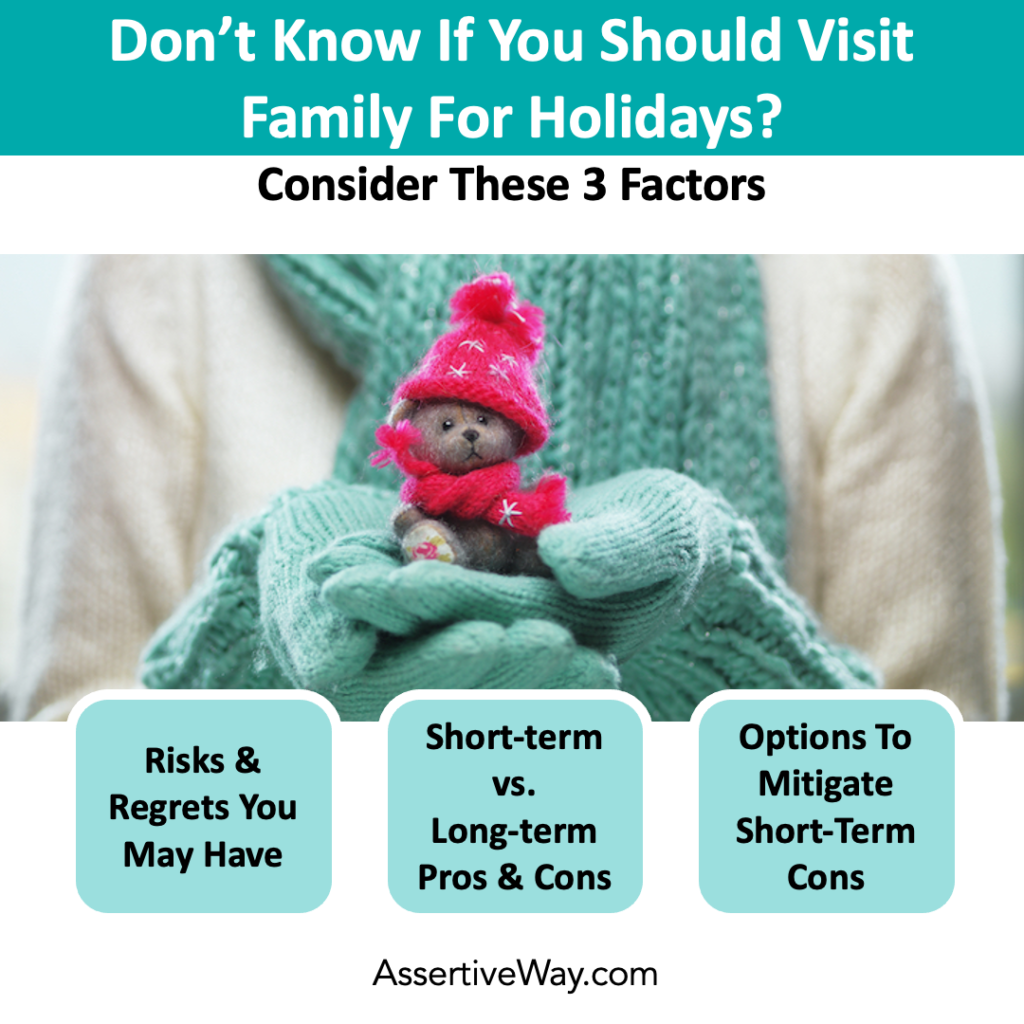
3 Elements to Better Connect Virtually
Remember that when you aren’t present in person, you need to overcommunicate your feelings and presence in other ways since you don’t have the same level of transmission of eye contact, touch, body language, nodding, and facial expressions.
Be mindful of how you use these 3 elements to better connect in virtual or phone conversations:
More emphatic words that communicate emotion
Curiosity: “tell me more”; “really?”
Sadness: “that’s really sad”; “I’m so sorry to hear that”
Happy: “I’m excited!”; “I can’t wait!”
Empathy: “I feel you”; “I hear you”; “That’s really hard”
Surprise: “no way”; “wow”; “I can’t believe that”; “that’s crazy”
Accentuated intonation
“wow” vs. “WOW!!!”; “no way” vs. “No Wayyyy!?”
Expressions to show you are listening
“I see”, “got it”, “I understand”, “could you repeat that”, “is this what you mean?”
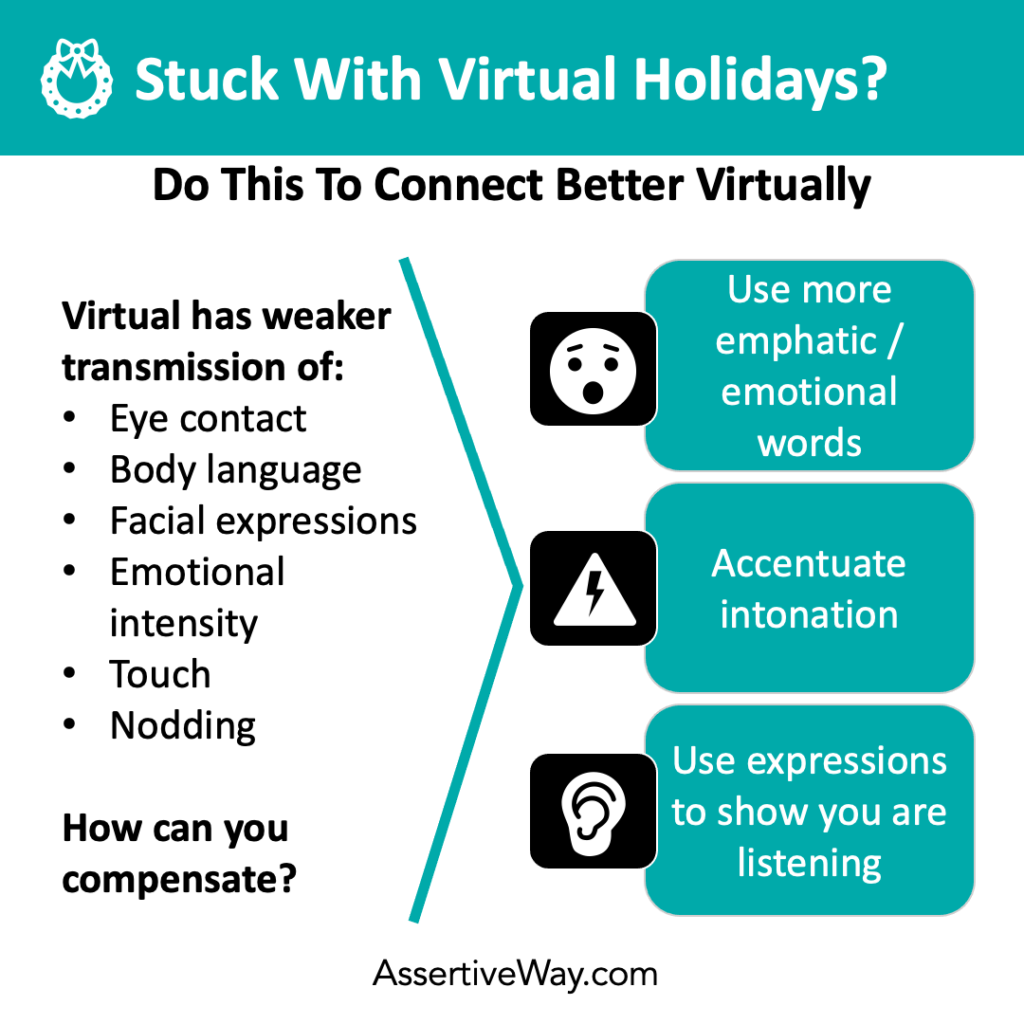
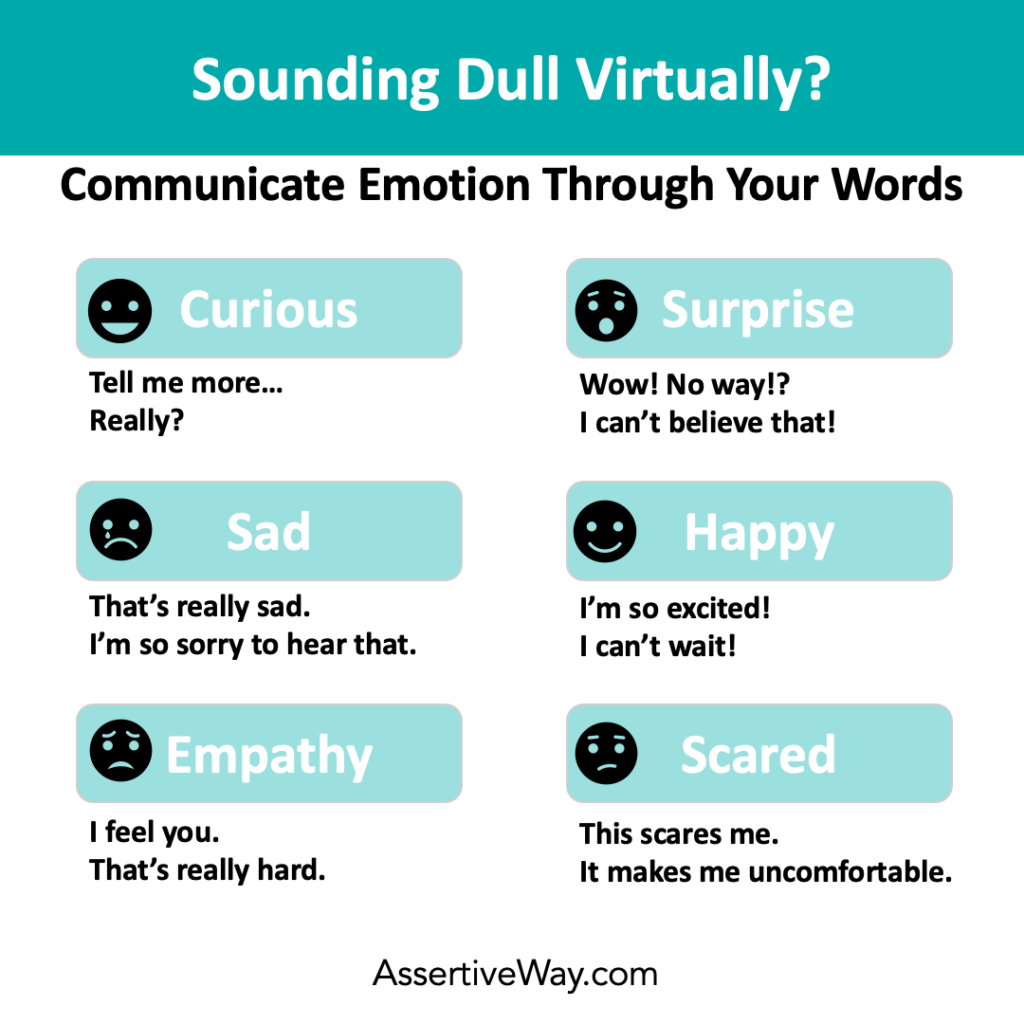
3 Strategies To Influence & Get Buy In
Here’s 3 strategies you can use to bridge the communication gap and influence your loved family and friends in these emotional hard conversations.
Get them to empathize with you.
“I’m terrified of causing you harm by bringing the virus to you. What would you do if you were me?”
Make it about you, not them.
“I couldn’t live with the regret of causing harm to you.”
“I’m not comfortable traveling with the coronavirus risks.”
Or if you are a nurse or doctor “I would feel incredibly guilty if I got infected and then caused my patients to die.”
Make it about the long-term benefits vs. short term pains.
“Once this pandemic is under control, we’ll can spend a lot more time together.”
“I’m not comfortable traveling with the coronavirus risks.”

6 Steps To Break The News Nicely
Let me share with you 6 steps to break the news that you’re not visiting your esteemed family members and friends during this holiday season in a warm, caring, and loving way and with less anxiety:
Step 1 – Reaffirm the relationship value
“You know I really care for you and I wish I could be there to celebrate this holiday together with you”
Step 2 – Be direct about your decisions without hesitation
“Unfortunately, this year we won’t visit.”
Step 3 – Say why based on what your fear is
“I could not handle the regret of bringing this virus to you and causing bad consequences.”
Step 4 – Offer an alternative
“Now here’s what I’d love to do. Why don’t we have a virtual dinner together. I know it’s not the same but I believe it can still be very special.”
Step 5 – Reaffirm the relationship value
“I love spending time with you and I wish I could be there.”
Step 6 – Paint a brighter future
“And I can’t wait for this epidemic to pass so I can come see you in person and give you a big hug.”
Full version:
“You know I really care for you and I wish I could be there to celebrate this holiday together with you. Unfortunately, this year we won’t be visiting. I could not handle the regret of brining this virus to you and causing bad consequences. Now here’s what I’d love to do. Why don’t we have a virtual dinner together? I know it’s not the same thing but I believe it can still be special. I love spending time with you and I wish I could be there and I can’t wait for this pandemic o pass so that I can come see you in person and give you a big hug.”
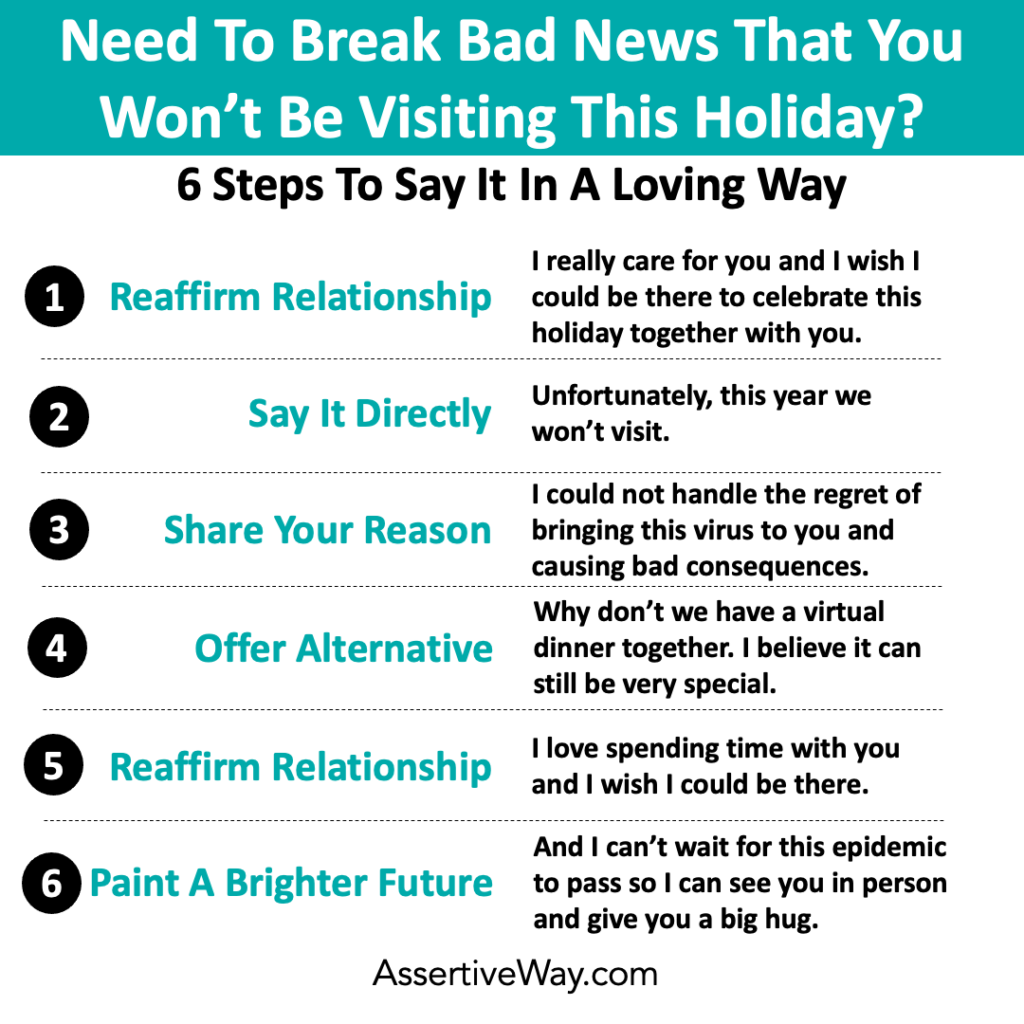
Don’t allow the discomfort of communicating bad news to have you do something that you feel uncomfortable with, that goes against your beliefs, or that may cause you painful regrets later. Speak sooner than later and focus on the positive. The way you handle the situation can make your relationship stronger. Remember, just like zika and other viruses, this too will pass. Just like Zika taught me to be more present on a continuous basis, let coronavirus change your connection habits for the better.
Happy holidays, however you choose to do it. Be safe and have fun.
Summary
As we approach 2020 end of year holidays, consider the Coronavirus risks. If you decide to not visit, then be more present virtually.
Enhance your virtual conversations by using more emphatic words that communicate emotion, by accentuating your intonation, and by using expressions to show you are listening.
To bridge the communication gap:
- Get them to empathize with you
- Make it about you, not them
- Make it about the long-term benefits vs. short term pains
To break the negative news that you’re not visiting during this holiday season in a warm, caring, and loving way:
- Reaffirm the relationship value;
- Be direct about your decisions without hesitation;
- Say why based on your feelings or concerns;
- Offer an alternative;
- Reaffirm the relationship value;
- Paint a brighter future
“Holidays are a state of mind.”
Spread the assertive confidence!
